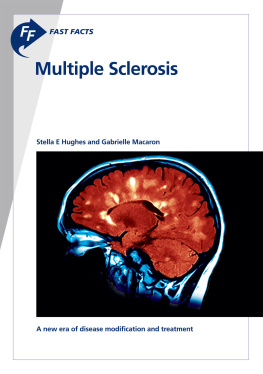Iris-Katharina Penner (editor) - Fatigue in Multiple Sclerosis: Background, Clinic, Diagnostic, Therapy
Here you can read online Iris-Katharina Penner (editor) - Fatigue in Multiple Sclerosis: Background, Clinic, Diagnostic, Therapy full text of the book (entire story) in english for free. Download pdf and epub, get meaning, cover and reviews about this ebook. year: 2023, publisher: Springer, genre: Home and family. Description of the work, (preface) as well as reviews are available. Best literature library LitArk.com created for fans of good reading and offers a wide selection of genres:
Romance novel
Science fiction
Adventure
Detective
Science
History
Home and family
Prose
Art
Politics
Computer
Non-fiction
Religion
Business
Children
Humor
Choose a favorite category and find really read worthwhile books. Enjoy immersion in the world of imagination, feel the emotions of the characters or learn something new for yourself, make an fascinating discovery.
- Book:Fatigue in Multiple Sclerosis: Background, Clinic, Diagnostic, Therapy
- Author:
- Publisher:Springer
- Genre:
- Year:2023
- Rating:3 / 5
- Favourites:Add to favourites
- Your mark:
Fatigue in Multiple Sclerosis: Background, Clinic, Diagnostic, Therapy: summary, description and annotation
We offer to read an annotation, description, summary or preface (depends on what the author of the book "Fatigue in Multiple Sclerosis: Background, Clinic, Diagnostic, Therapy" wrote himself). If you haven't found the necessary information about the book — write in the comments, we will try to find it.
Fatigue is a major symptom in patients with multiple sclerosis (pwMS) and is mainly responsible for unemployment, early retirement but also social withdrawal. This book combines reporting of actually existing scientific knowledge with guidance for clinical practice. As such the book helps health care professionals in all countries to better understand fatigue symptoms but also to help patients to better cope with them.
Iris-Katharina Penner (editor): author's other books
Who wrote Fatigue in Multiple Sclerosis: Background, Clinic, Diagnostic, Therapy? Find out the surname, the name of the author of the book and a list of all author's works by series.










